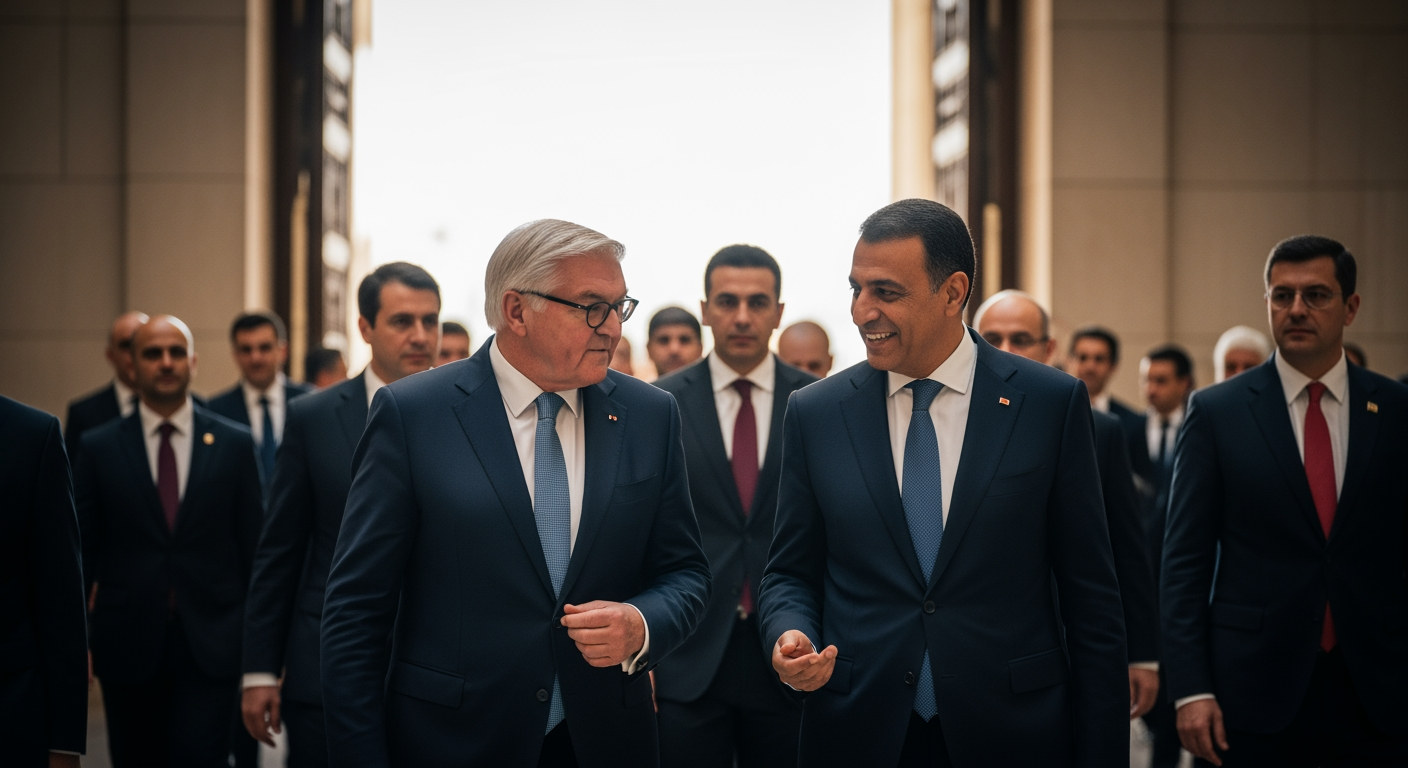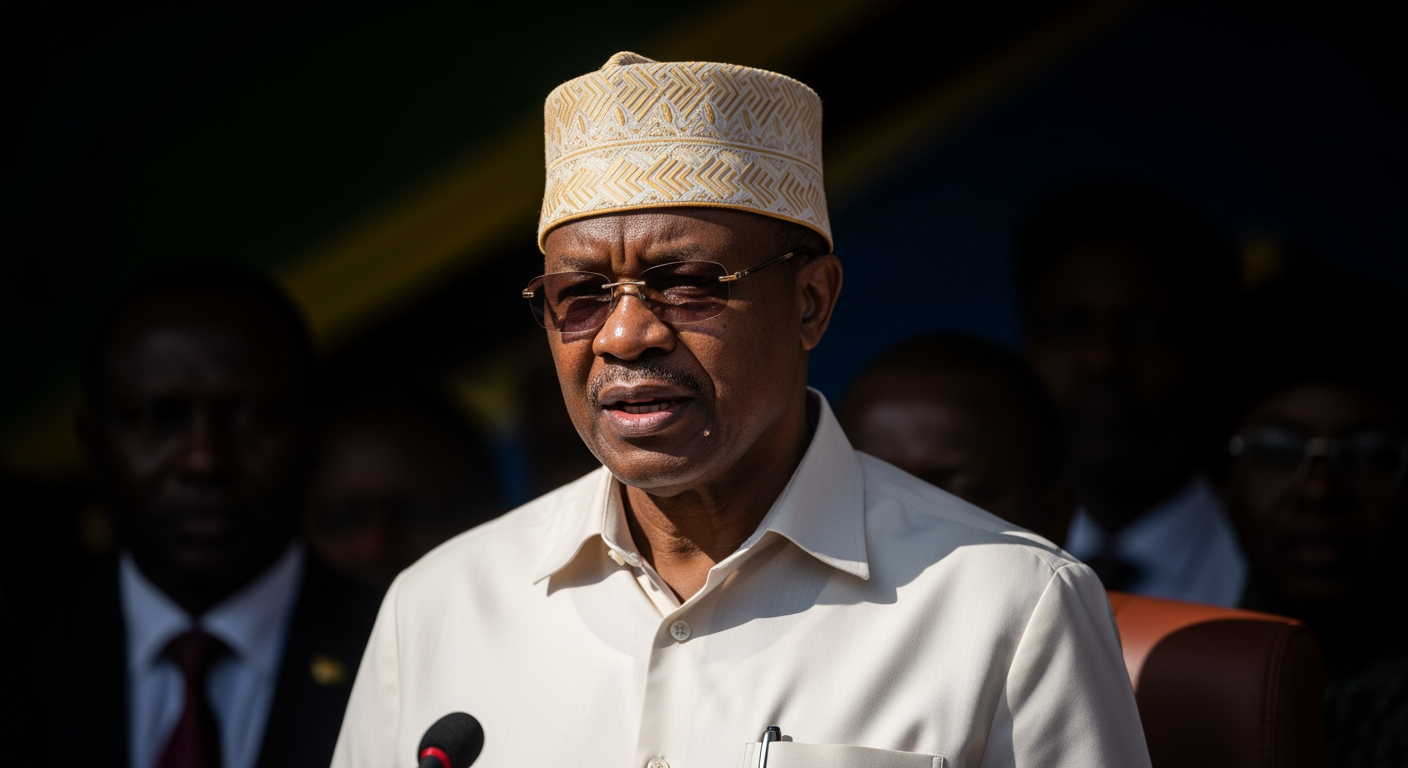Related Articles

Grand Egyptian Museum Opens to Global Fanfare, German President Steinmeier Underscores Cultural Diplomacy

APEC Leaders Chart Future Course with Landmark Declarations on AI and Demographics





Dar es Salaam, Tanzania – President Samia Suluhu Hassan has been declared the winner of Tanzania's recent presidential election, securing a resounding victory with nearly 98% of the vote. The electoral commission announced the results on Saturday, November 1, 2025, marking an overwhelming mandate for the incumbent leader. However, the election was overshadowed by significant controversy, including the disqualification of major opposition figures, allegations of widespread repression, and deadly protests that erupted across the East African nation. The outcome has ignited concerns among international observers and human rights advocates regarding the state of democratic freedoms and political stability in Tanzania.
President Hassan's victory, with official figures reporting 97.66% or 98% of ballots cast in her favor, represents one of the most dominant electoral outcomes in the region's recent history. The National Electoral Commission indicated a high voter turnout, nearing 87% of the country's 37.6 million registered voters. This election marks Hassan's first full five-year term as president, having ascended to the top office in March 2021 following the death of her predecessor, John Magufuli. The ruling Chama Cha Mapinduzi (CCM) party, which has governed Tanzania since its independence over six decades ago, lauded the results as a testament to the president's popularity and the party's enduring influence.
Despite the declared landslide, the electoral process drew sharp criticism due to the systematic exclusion of major opposition parties and their leaders. The main opposition party, CHADEMA, was disqualified from participating in the election in April after refusing to sign a government code of conduct. Its prominent leader, Tundu Lissu, faced arrest and was charged with treason, further sidelining him from the political contest. Similarly, Luhaga Mpina, a candidate from another opposition group, ACT-Wazalendo, was also barred from running, leaving President Hassan largely unchallenged by significant political rivals. Opposition groups, including CHADEMA, publicly dismissed the election as a "coronation" rather than a genuine democratic exercise, asserting that the removal of credible challengers created an uneven playing field. The electoral commission's actions and allegations of interference have fueled claims that the process lacked credibility and fairness, leading to widespread discontent among segments of the populace.
The period surrounding the election was marked by significant unrest and allegations of human rights abuses. Protests erupted during the voting period and intensified following the announcement of results, with demonstrators reportedly tearing down banners of President Hassan and setting government buildings ablaze. Security forces responded to the demonstrations with tear gas and gunfire. CHADEMA claimed that hundreds of people, potentially as many as 700, had been killed in the protests across various cities, a figure the government dismissed as "hugely exaggerated". The UN Human Rights Office, while not confirming the opposition's high death toll, reported at least 10 protest-related fatalities in three cities. In response to the escalating tensions, authorities imposed a lockdown to prevent further street demonstrations, and internet connectivity was temporarily restricted, including access to social media platforms like X (formerly Twitter) and JamiiForums. Human rights organizations, including Amnesty International, had previously documented a pattern of enforced disappearances, arbitrary arrests, and extrajudicial killings in Tanzania leading up to the polls, painting a picture of shrinking civic space. The United Nations has voiced concerns that the country of 68 million people faces a "pattern of repression".
The current electoral environment bears striking similarities to the 2020 general election under the late President John Magufuli. In that election, Magufuli was also re-elected with a significant majority of 84.4% of the vote amidst widespread allegations of fraud, voter suppression, and violence, particularly in Zanzibar. Opposition leaders, including Tundu Lissu and Zitto Kabwe of ACT-Wazalendo, had denounced the 2020 results, citing ballot box stuffing and restrictions on polling agents. Following the 2020 election, Kabwe revealed that he had been offered asylum by four foreign missions due to fears for his safety, highlighting the severe political tensions that gripped the nation. The consistent allegations of electoral irregularities and repression against the opposition under both administrations suggest a deepening trend of restricted political competition within the country, a trajectory that has drawn considerable international scrutiny.
President Hassan's re-election, achieved with such an overwhelming margin amidst significant domestic unrest and international concern, casts a long shadow over Tanzania's democratic trajectory. While the government emphasizes stability and development, critics argue that the suppression of dissenting voices and the effective sidelining of opposition parties undermine the foundational principles of a multi-party democracy. The ongoing reports of violence and human rights violations following the election risk further eroding public trust and deepening political divisions. As Tanzania embarks on another five-year term under the CCM's continued dominance, the international community and human rights groups will likely remain vigilant, closely monitoring the government's actions regarding civil liberties, political pluralism, and the rule of law. The challenge for President Hassan's administration will be to navigate a path towards inclusive governance and national unity in a climate still charged with accusations of repression and concerns over democratic integrity.